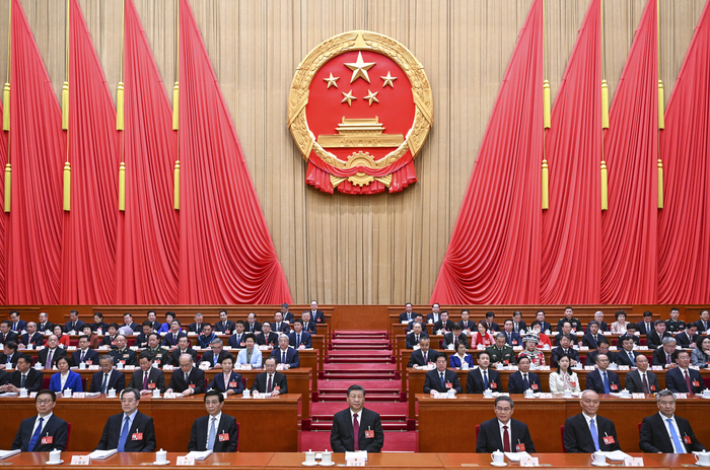In response to Trump’s pledge to deport large numbers of undocumented foreigners, public opinion calls for Canada to strengthen its ban on illegal immigration.
Refugees have increased in recent months on irregular border crossings between the U.S. and Canada.
As U.S. President-elect Donald Trump, who will return to the White House after four years, has re-emphasized his pledge to ‘deport undocumented aliens (illegal immigrants)’ after being elected, neighboring Canada is on edge. This is due to concerns that the influx of immigrants into the country through the border with the United States will increase rapidly.
President-elect Trump told NBC News on the 7th (local time) that “there is no other choice” other than deporting some of the undocumented aliens. The number of undocumented aliens in the United States is estimated at approximately 11 million.
According to the Guardian, tens of thousands of Haitians fled from the United States to Canada after President-elect Trump abolished temporary protection status for Haitian refugees during his first term in office. Many of them went to Canada through the ‘Roxham Road’ border crossing, which is an unpaved country road.
Wroxham Road was once the busiest among the irregular border crossings established on the 8,891 km long U.S.-Canada border, and it is estimated that more than 100,000 people entered Canada through it. In 2022 alone, more than 40,000 people entered Canada from upstate New York through here, most of them refugee applicants who came without work permits.
The Wroxham Road border crossing was closed last year. This is because the two countries decided to revise the ‘Secure Third Country Agreement (STCA)’, which sets out the handling policy for asylum seekers from third countries in the border area, and apply it to the entire land border, including not only regular checkpoints but also irregular border passages.
Before the STCA was signed in 2004, Canada had to conduct refugee screening at all entry points to determine whether to allow entry, but after the STCA was signed, the burden was reduced by requiring refugees to apply for refugee screening in the country where they arrived first.
“Canada is geographically remote and has a very limited visa issuance system,” said Audrey McLean, a law professor at the University of Toronto. The only country with which we share a land border is the United States. So (STCA) was part of a long-term effort to reduce the number of refugee claimants that Canada must accept,” he said, adding, “Canada, like all countries, wants to accept fewer refugees.”
The Royal Canadian Mounted Police (RCMP) explained that the number of people arriving at border crossing points has increased in recent months and that it will be able to cope with a scenario where the number of people arriving at the border crossing increases to several hundred each day.
Those who apply to be recognized as refugees at the Canadian entry point cannot be sent back to the U.S. at will by RMCP, and their application must be entered into the system and then reviewed. Due to the large backlog of reviews, it is estimated that approximately 250,000 applications are currently being processed, with the average processing time being 44 months.
Yves-François Blanchet, leader of the Quebec separatist party, said the Canadian federal government “refuses to acknowledge that the situation is clear and very serious,” and argued that more resources should be devoted to anticipating and blocking smuggling routes.
Quebec Premier François Legault said that Quebec cannot afford to receive more refugees, and that although border management is the authority of the federal government, the provincial government will also deploy police officers to monitor the border crossing.
Meanwhile, at the end of last month, Canadian Prime Minister Justin Trudeau, who has maintained a generous immigration policy, announced plans to drastically reduce the number of new permanent residents next year to 395,000, and further reduce the number to 380,000 in 2026 and 365,000 in 2027. This comes after the administration faced opposition after announcing that it would allow 500,000 new permanent residents every year for the next two years.
Reporter Junho Yoon [email protected]
[ⓒ 세계일보 & Segye.com, 무단전재 및 재배포 금지]


